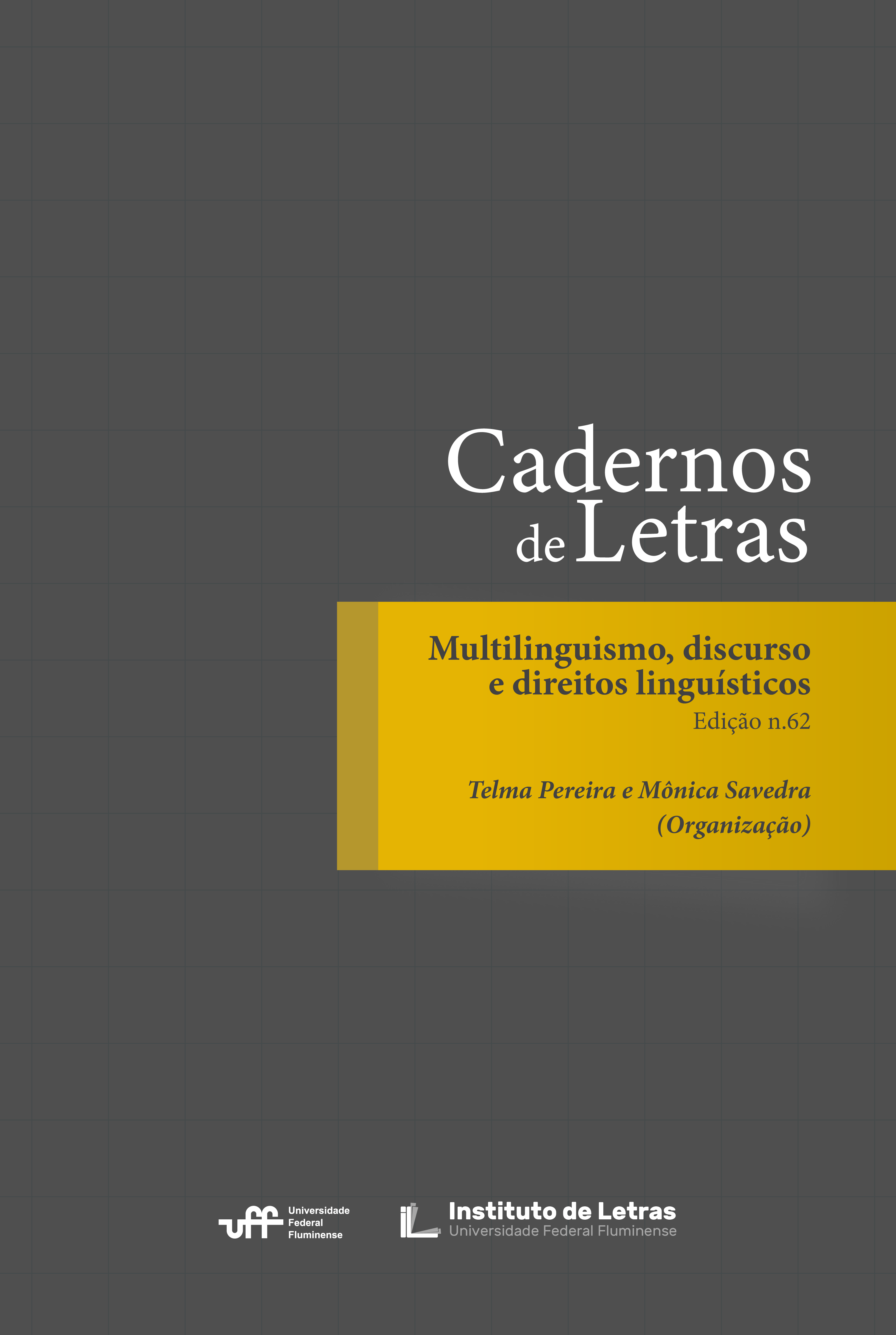Multilinguismo e direitos linguísticos: a cooficialização e a patrimonialização como formas de reconhecimento de línguas minorizadas
DOI:
https://doi.org/10.22409/cadletrasuff.v32i62.49004Resumo
O processo desconcentração administrativa que vigora desde a Constituição de 1988 tem desencadeado políticas linguísticas de cooficialização e de patrimonialização de línguas minorizadas, gerando ações glotopolíticas em contextos multilígues, sobretudo em relação às línguas indígenas e às línguas de imigração. Neste artigo, a partir de uma abordagem bibliográfica e documental, analisamos alguns documentos legislativos educacionais municipais, estaduais e federais, a fim de compreender a ação dos diferentes atores glopolíticos. Nossa análise se baseia nos conceitos de Políticas Linguísticas, Políticas Públicas e de Direitos Linguísticos. Contextualizando nossa reflexão no processo de redefinição do papel da União e dos entes federativos, percebemos as políticas de cooficialização e de patrimonialização de línguas minoritárias como um indicativo da autonomia regional. No entanto, os resultados mostram ainda a necessidade de um real planejamento democrático que atenda essas línguas minorizadas.
Downloads
Downloads
Publicado
Edição
Seção
Licença
Copyright (c) 2024 Cadernos de Letras da UFF

Este trabalho está licenciado sob uma licença Creative Commons Attribution-NonCommercial 4.0 International License.
Autores que publicam em Cadernos de Letras concordam com os seguintes termos:
Os autores mantêm os direitos e cedem à revista o direito à primeira publicação, simultaneamente submetido a uma licença Creative Commons CC-BY-NC 4.0, que permite o compartilhamento por terceiros com a devida menção ao autor e à primeira publicação pela Cadernos de Letras.
Os autores podem entrar em acordos contratuais adicionais e separados para a distribuição não exclusiva da versão publicada da obra (por exemplo, postá-la em um repositório institucional ou publicá-la em um livro), com o reconhecimento de sua publicação inicial na Cadernos de Letras.






